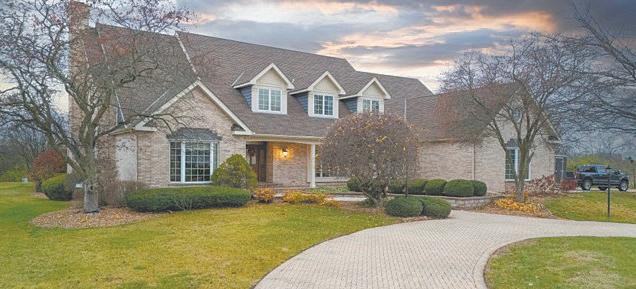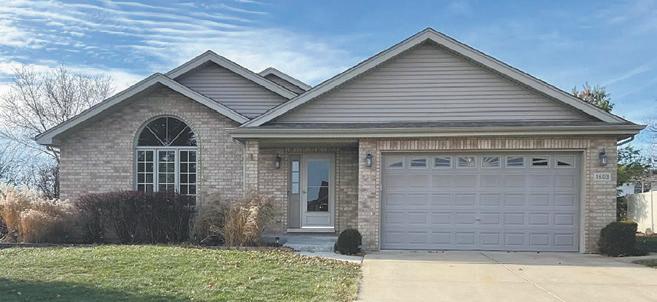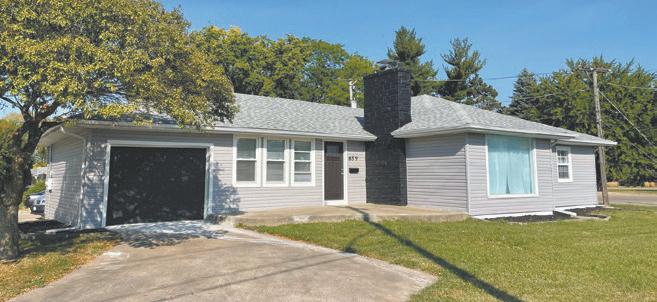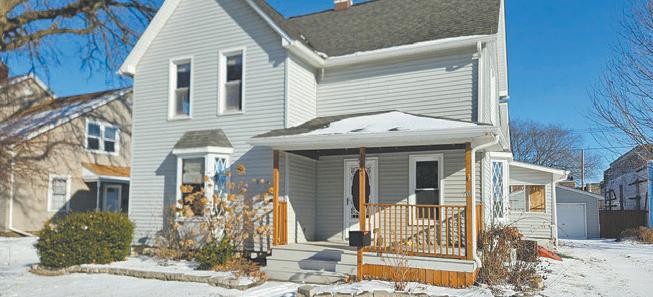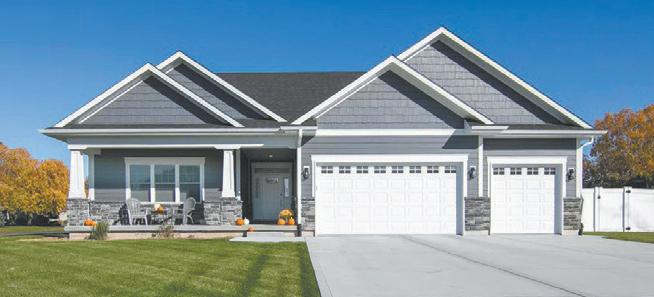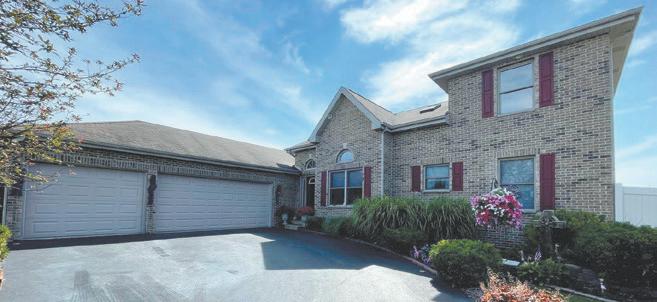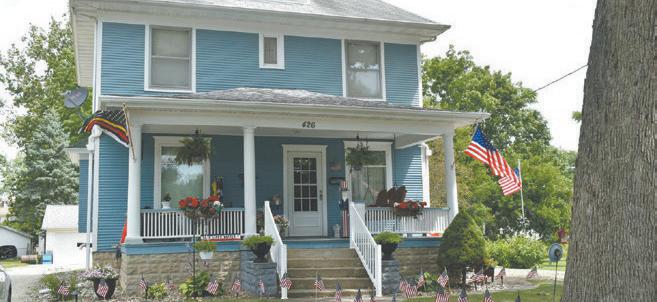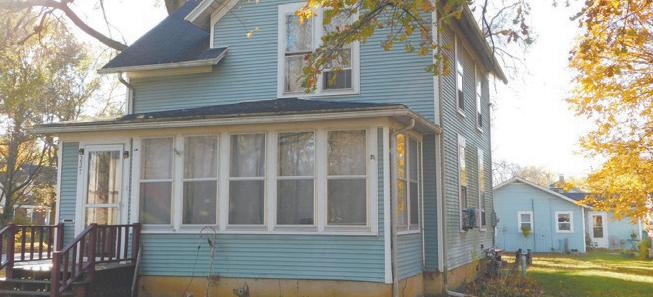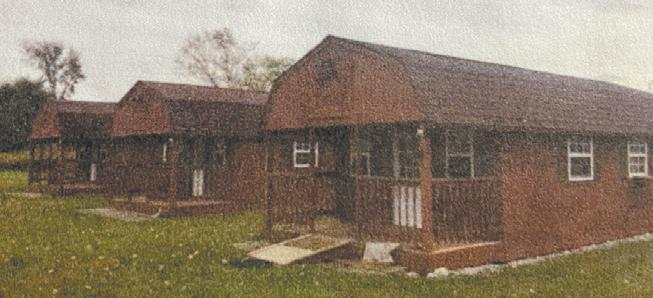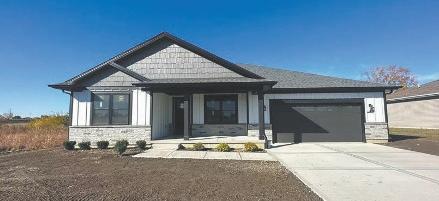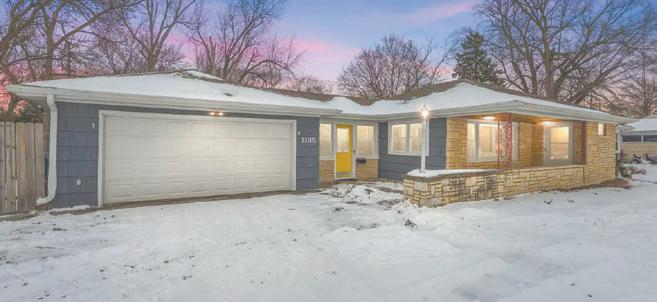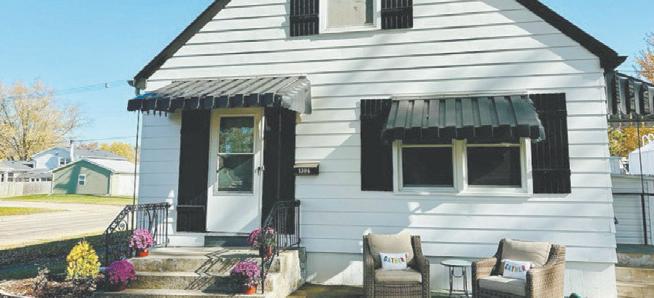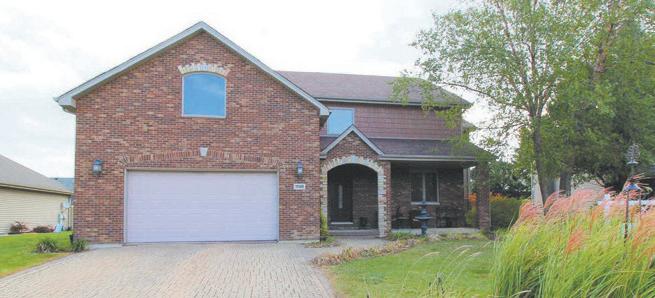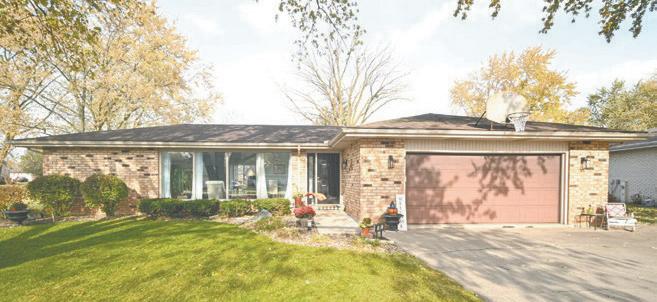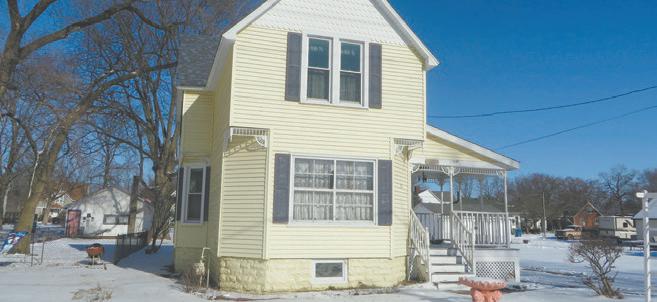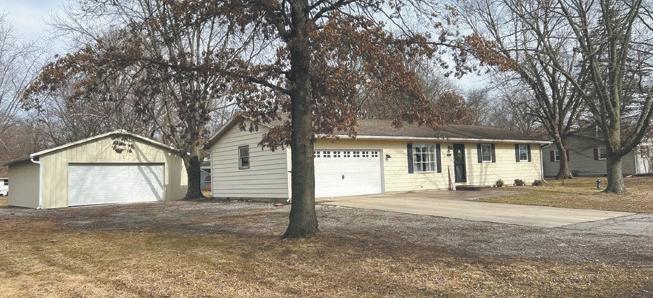

5 renovations that provide a strong return on investment
METRO CREATIVE
Renovations that make homeowners and residents of a home happy are always worth the investment.
Though it’s certainly true that projects that create more functional, usable space and add comfort and convenience are worth the price, such renovations are even more beneficial if they provide a good return on homeowners’ financial investment.
Returns are often cashed in when homeowners put their homes up for sale, and each year Remodeling magazine releases its “Cost vs. Value Report,” which considers a wealth of data across the United States to determine which renovations return the highest percentage of homeowners’ financial investment. According to the “2024 Cost vs. Value Report,” the following are five projects that provide a strong return on investment (ROI).
1. Garage door replacement
The average job cost for this project is slightly more than $4,500 but the project is valued at $8,751, providing an especially high 194% ROI.
2.
Steel door replacement
Remodeling magazine notes that a steel entry door replacement is worth double what it was worth in 2023. This project offers a 18% ROI on an average investment of $2,355.
3. Manufactured stone veneer
A manufactured stone veneer is a man-made product that appears as if it’s natural stone. Many homeowners prefer manufactured stone veneer to natural stone because of the price, as the former is less expensive and easier to install, which means lower labor costs as well. The comparatively low cost of manufactured stone veneer is perhaps one reason why it averages a roughly 153% ROI on an average cost of just more than $11,000.
Home renovations that provide a significant ROI can make homeowners happy once a project is completed and even happier when the day comes to put a home up for sale.
4. Grand entrance upscale (fiberglass)
Few things are as awe-inspiring as an impressive entryway, and upgrading to a grand fiberglass entrance door provides a 97% ROI. Components of these entryways can vary, but Remodeling magazine notes the project may entail removing an existing entry door and cutting and reframing the opening for a larger with dual sidelights.
5. Minor kitchen remodel
According to the “2024 U.S. Houzz & Home Study” from Houzz Research, kitchens were the most popular rooms to renovate in 2023. There’s no denying the appeal of a newly renovated kitchen, and homeowners considering such a project may be happy to learn that a minor kitchen remodel that costs an average of around $27,000 provides a 96% ROI. Bankrate.com notes that minor kitchen remodels typically keep the current kitchen design, size and layout intact, but these projects may involve painting walls, refreshing backsplash, replacing lighting and plumbing fixtures, and changing cabinet hardware and facades.
Home renovations that provide a significant ROI can make homeowners happy once a project is completed and even happier when the day comes to put a home up for sale.
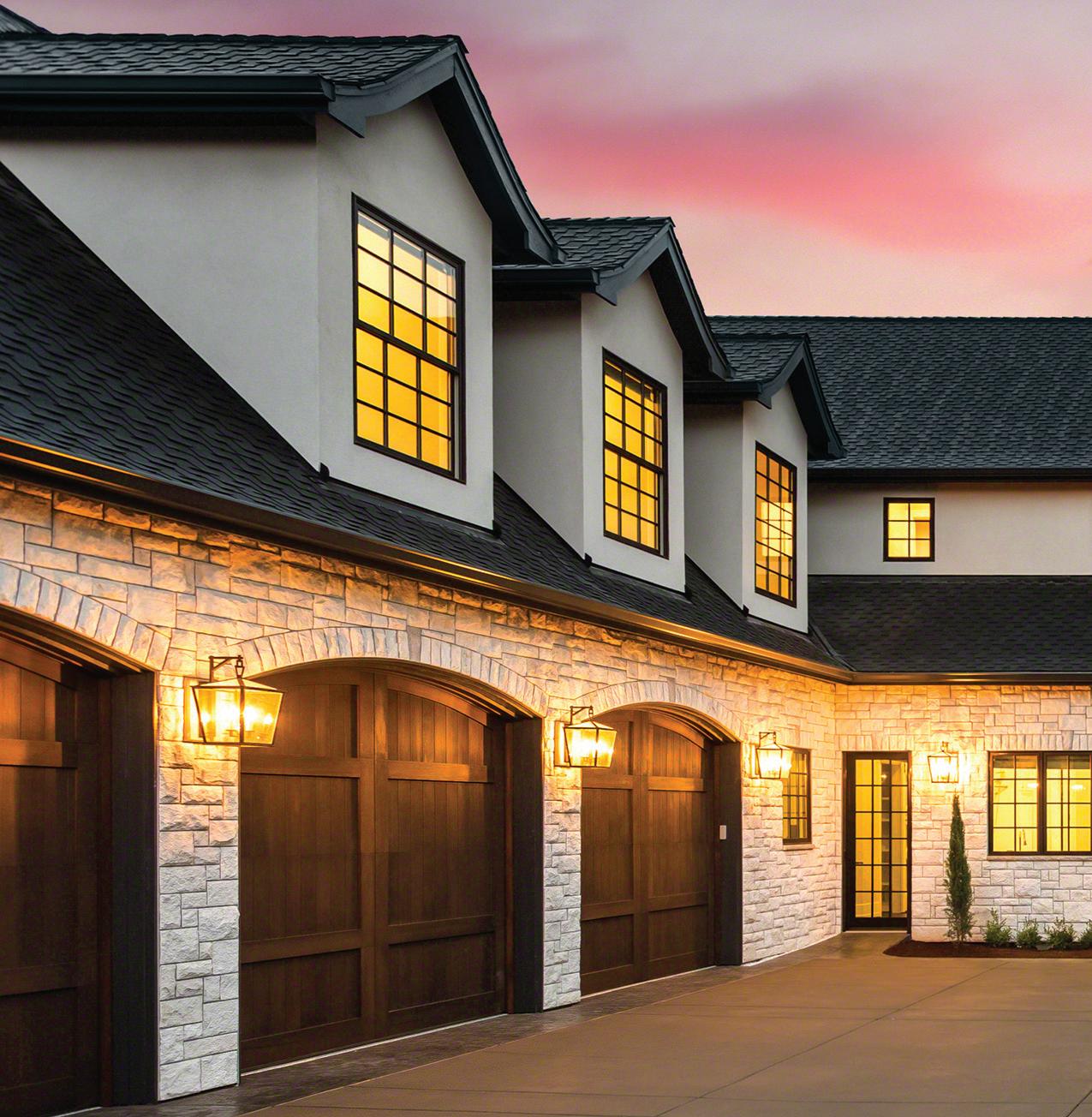

Riverside Medical Group has grown to over 90 providers strong — the region’s premier physicians, both primary care providers and specialists, working together to care for your family when and where you need it most.
Working together to put Well Within Reach. The doctor is in. Find







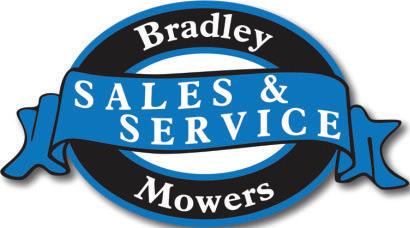











Features of the Week
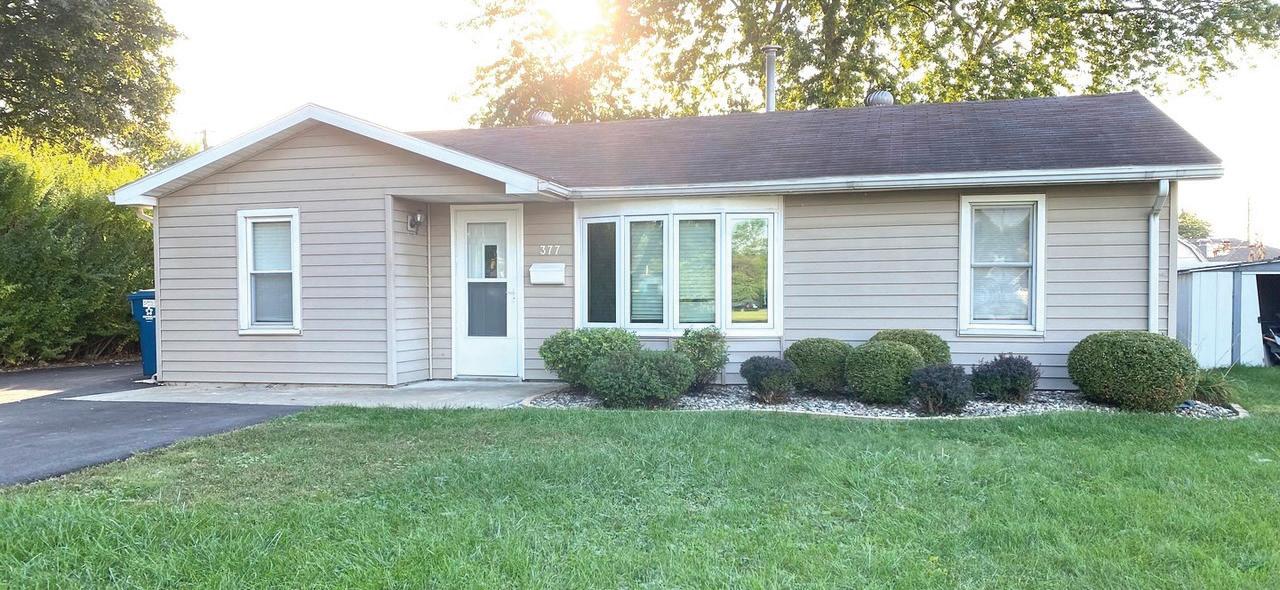
Bourbonnais Cute As Can Be 3 Bedroom 1 Bath Ranch!
• Very nice Kit. w/snack bar open to the Living Room. All appliances stay!
• Master Bedroom features a vaulted ceiling and closet organizer/cedar closet.
• Home has 4 ceiling fans throughout.
• Nice size laundry room with pantry.
• Lovely privacy fenced bkyd. w/patio & add’l covered patio at 1.5 det. gar.
• Roof, Furnace and Central air 1998. Water heater 2024.
• Conveniently located just off Armour Rd. close to Kroger, gas stations, Banks, restaurants, and easy access to Rt 45, Rt 50 and I57.
• New homeowner will qualify for the Homestead Exemption, which is not currently being used.
• MLS #12267178
377 N Levasseur Ave., Bourbonnais | $153,900 815-937-4370

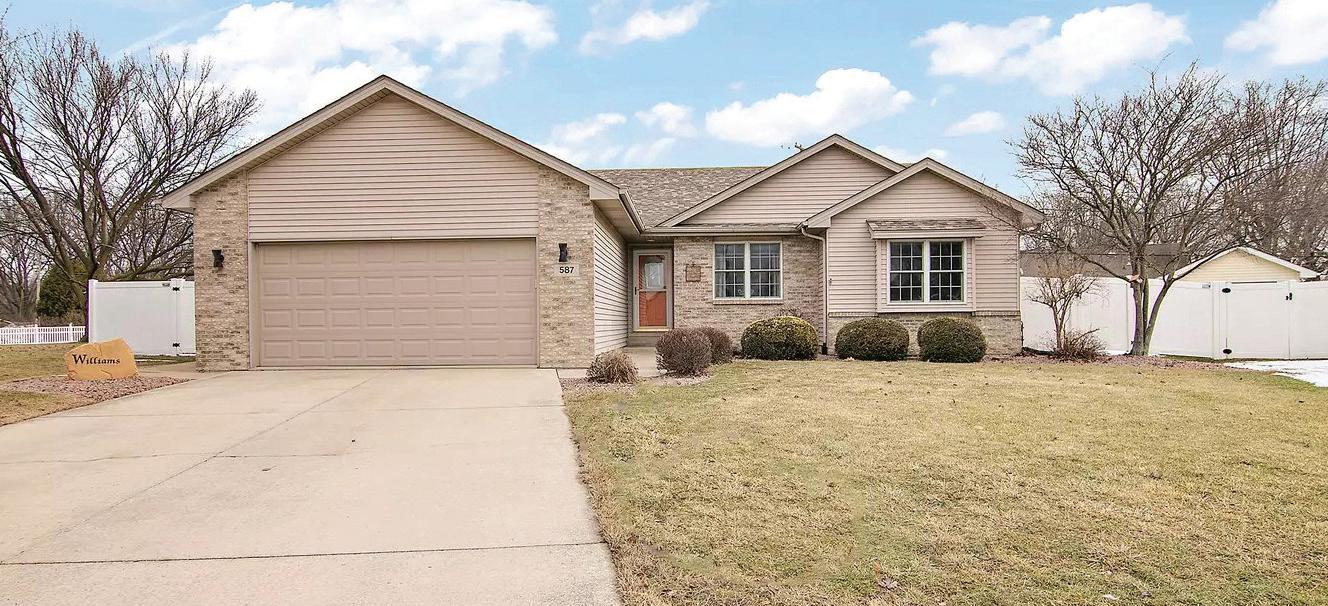
4-BR,
2-BA Ranch Home in the Desirable Turnberry Subd.!
• Situated on a quiet cul-de-sac, this home offers a spacious & inviting layout with vaulted ceilings in the living room and kitchen.
• The LR feat. a cozy gas FP & built-in surround sound speakers.
• The kit. boasts ample cabinet storage, granite CT, a subway tile backsplash, SS appliances, and a charming garden window over the sink.
• A large 1/4-acre fenced backyard with a storage shed.
• The primary suite offers a WIC & a private full BA w/a walk-in shower (2021).
• Three additional generously sized bedrooms provide excellent closet space and share a second full bath with a tub/shower combo and a linen closet.
• This move-in-ready home has been meticulously maintained & thoughtfully updated.
• MLS #12281260 587 Thornberry Ct., Bourbonnais | $335,000 815-937-4370
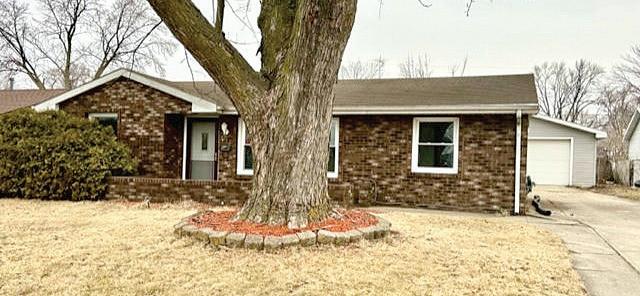
Move In Ready Ranch Style Home In Bourbonnais!
• This property has 3 bedrooms and 1 bathroom with recent updates including vinyl plank flooring throughout, and an updated bathroom.
• The home boasts a split floor plan for privacy and convenience.
• The home includes a large kitchen has room for a table, plenty of cabinet and counter space, along with a separate laundry room.
• There is a 2 car detached garage and a fenced in backyard.
• Call today for your private showing!
• MLS #12257549
40 Jordan Dr., Bourbonnais | $174,900 815-370-6807


How to find the right real estate agent
METRO CREATIVE
Working with a real estate agent can give both buyers and sellers an edge in what continues to be a challenging real estate market.
Agents, brokers and Realtors are professionals who have distinct expertise and knowledge of the process of buying and selling homes. That expertise is evidenced by how many people rely on real estate professionals each year. A 2022 Zillow Group Consumer Housing Trends report found 88& of homeowners choose to list their homes with a real estate agent when it comes time to sell.
Individuals understand that it can be in their best interests to work with real estate professionals, but they may not know where to look as they seek to work with one. Here are some tips for finding the right match in a real estate professional.
• Know the difference in real estate professionals. Real estate agents are required by the state in which they operate to pass a real estate license exam. Real estate brokers take it a step further and undergo additional training, which could bring additional experience to the table. Realtors are members of the National Association of Realtors and beholden to its strict code of ethics. These individuals also may have undergone additional training that qualifies them to work with certain types of clients, such as seniors.
• Seek referrals. Friends or family members, or even others in the community, can put people in touch with real estate professionals. When asking for
referrals, individuals can inquire about certain professionals and how they handled buying and/or selling a home.
• Work with the right type of agent. Generally speaking, real estate agents either work with buyers or sellers in the transaction. Many will do both, but some specialize in buying or selling. Find a professional who either does both or specializes in your position.
• Research an agent’s online presence. Use the internet to see if the agent has a website, a particular philosophy or a specialty. This also may be a place to check online reviews. Don’t be dissuaded by one or two poor reviews. However, if there are many, it may be best to look elsewhere.
• Meet and interview potential agents. Individuals should speak with a couple of real estate professionals to see what they offer. This is a good way to determine if there is a connection there, and whether the agent will get the results needed. A well-prepared agent will come with data, including “comps” of properties in the area. Professionals typically have information about the current market trends and a portfolio of the homes they have brokered recently.
• Go with gut instincts. If it’s between two people of equal qualification, select the person with whom you have a stronger rapport. This person will be guiding you through a sizable financial transaction, so comfort level is important. Finding the right real estate professional can take some time. But the right professional will guide clients through the often complex and occasionally frustrating process of buying or selling property.







Pros and cons of open concept floor plans
METRO CREATIVE
Open floor plans that make it easy to move through primary living and entertaining areas have been popular for decades. Open concept floor plans join the dining room, kitchen and living (great) room into a communal space where sight lines are maximized and walls are minimal.
According to JJones Design Co., the origins of open concept floor plans may be traced to the deaf community. An open layout allows for better visual communication and awareness of one’s surroundings, and some deaf individuals modified their kitchen and living spaces to facilitate more room for social gatherings and signing. Nowadays, it’s nearly impossible to find a new construction with closedoff rooms. Here’s a look at some of the pros and cons of having an open-concept home.
Benefit: Open concept plans make small spaces feel bigger. When smaller homes are broken up by walls, they can seem even smaller. By tearing down walls, one can trick the mind into thinking there is more square footage.
Drawback: The space may feel too large. An open concept floor plan in a large home can make interior spaces feel cavernous. A cozy home can be difficult to achieve with fewer walls.
Benefit: Open concept plans facilitate the flow of natural light. Without walls to break up rooms, homeowners can maximize light coming in through their windows. This also may help to brighten darker rooms that do not get as much natural light.
Drawback: Privacy can be hard to achieve. Unobstructed views from windows and doors can make it more challenging to create privacy when desired. When window shades are open, passersby can see into a home. Also, sunlight may end up wearing out flooring and furniture throughout the home.
Benefit: Open floor plans allow more space to spread out when entertaining. One of the biggest plusses of open floor plans is that it makes it easier to host crowds. Guests can enjoy the communal space, while hosts can still interact with friends and family even while preparing meals in the kitchen.
Drawback: Homeowners will likely need to do
more cleaning ahead of hosting guests, as multiple rooms will be on display. Also, cleanup afterwards may be more arduous since guests have spent time in multiple spaces.
Benefit: Open concept plans can improve property value. The home renovation experts at The Spruce note open floor plans are desirable and increase the value of a home by up to 7.4 percent a year.
Drawback: Some home buyers are beginning to shy away from open floor plans. This may have been prompted by stay-at-home requirements during the COVID-19 pandemic, when multiple family members were working and doing school work at home. In that environment, an open-concept layout didn’t provide the privacy or distraction-free spaces residents may have needed.
Open floor plans have been around for more than 30 years, but they aren’t everyone’s cup of tea. The pros and cons of this design style merits consideration when renovating or shopping for a home.


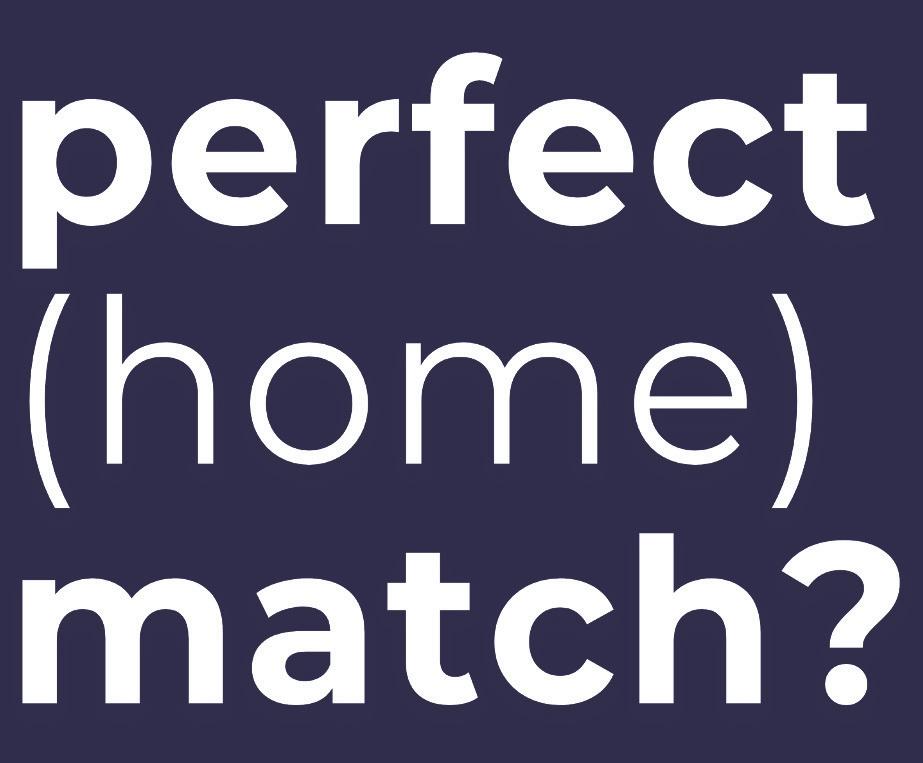












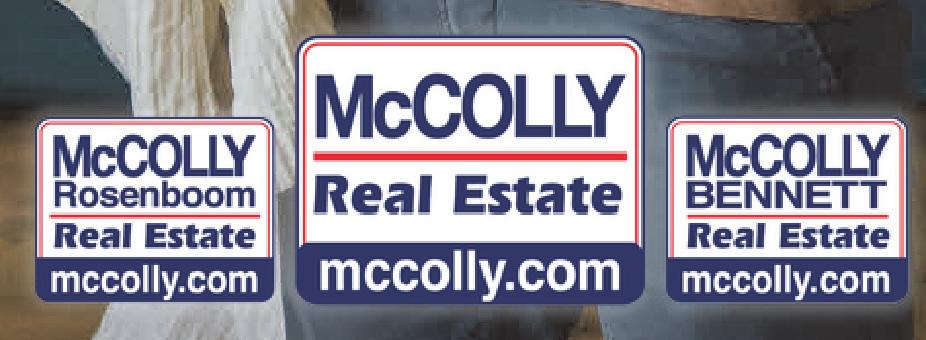

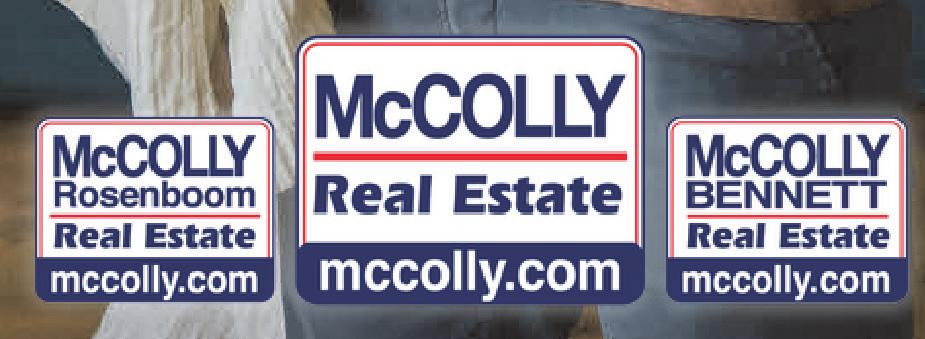

Common questions about reverse mortgages
METRO CREATIVE
Homeownership is a dream for millions of people across the globe. The National Association of Realtors indicates real estate has historially exhibited long-term, stable growth in value. Money spent on rent is money that a person will never see again. However, paying a traditional mortgage every month enables homeowners to build equity and can be a means to securing one’s financial future.
Homeowners typically can lean on the value of their homes should they need money for improvement projects or other plans. Reverse mortgages are one way to do just that.
Who is eligible for a reverse mortgage?
People near retirement age are eligible for a specific type of loan they can borrow against. Known as a “reverse mortgage,” this type of loan can be great for people 62 or older who perhaps can no longer make payments on their home, or require a sum of money to use right now, without wanting to sell their home.
In addition to meeting the age requirement, a borrower must live at the property as a primary residence and certify occupancy annually to be eligible for a reverse mortgage. Also, the property must be maintained in the same condition as when the reverse mortgage was obtained, says Fannie Mae.
How does a reverse mortgage work?
The Consumer Finance Protection Bureau says a reverse mortgage, commonly a Home Equity Conversion Mortgage, which is the most popular type of reverse mortgage loan, is different from a traditional mortgage. Instead of making monthly payments to bring down the amount owed on the loan, a reverse mortgage features no monthly payments. Rather, interest and fees are added to the loan balance each month and the balance grows. The loan is repaid when the borrower no longer lives in the home.
What else should I know?
With a reverse mortgage, even though borrowers are not making

monthly mortgage payments, they are still responsible for paying property-related expenses on time, including, real estate and property taxes, insurance premiums, HOA fees, and utilities. Reverse mortgages also come with additional costs, including origination fees and mortgage insurance up to 2.5% of the home’s appraised value, says Forbes. It’s important to note that most interest rates on these loans are variable, meaning they can rise over time and thus increase the cost of borrowing. In addition, unlike traditional mortgage payments, interest payments on reverse mortgages aren’t tax-deductible.
How is a reverse mortgage paid back?
A reverse mortgage is not free money. The homeowners or their heirs will eventually have to pay back the loan when the borrowers no longer live at the property. This is usually achieved by selling the home.
The CFPB notes if a reverse mortgage loan balance is less than the amount the home is sold for, then the borrower keeps the difference. If the loan balance is more than the amount the home sells for at the appraised value, one can pay off the loan by selling the home for at least 95% of the home’s appraised value, known as the 95% rule. The money from the sale will go toward the outstanding loan balance and any remaining balance on the loan is paid for by mortgage insurance, which the borrower has been paying for the duration of the loan.
Reverse mortgages can be a consideration for older adults. However, it is essential to get all of the facts to make an informed decision.

Metro Creative
CONSUMER GUIDE
PREPARING TO SELL YOUR HOME
Once you decide to sell your home, you might have questions about how to prepare it for listing and viewing by potential buyers. An agent who is a REALTOR® can guide you through this process. Here are some common considerations as you prepare your home to sell:
How do I find the right agent to sell my home? You should feel empowered to find and work with the agent who is the best fit for your needs. To guide this process, NAR has a dedicated resource with questions to consider when selecting a seller’s agent. When you work with an agent who is a REALTOR®, you are working with a professional guided by ethical duties under the REALTOR® Code of Ethics, including the pledge to protect and promote the interests of their clients.
Do I need to have my home inspected before putting it up for sale? No, a presale inspection is not required. However, an inspection can be used to identify potential issues in your home that you can consider repairing before showing your home to potential buyers and use as a differentiator for your property. If you choose to conduct a pre-sale inspection, an inspector will assess your home’s condition, including its structure, exterior, roof, plumbing, electrical systems, heating and air conditioning, interiors, ventilation / insulation, and fireplaces. It may also include tests for problems that can affect human health like mold, radon gas, lead paint, and asbestos. Sometimes buyers may also conduct their own inspection as a contingency in their purchase agreement. If you uncover possible issues that may appear during a buyer’s inspection, you will have time to make any necessary changes that could impact your home’s asking price. You should also talk to your agent about disclosure requirements in your state if a pre-sale inspection uncovers an issue.
What should I do if something in my home needs to be fixed or replaced soon? If something in your home requires a significant repair—such as a roof, a system such as HVAC, or an appliance like a dishwasher or washer / dryer—you should determine how much the repair will cost, even if you do not plan to fix it before selling the home. These estimates will help sellers determine the costs that buyers might take into consideration when negotiating a purchase agreement.
Am I required to make any cosmetic updates to my home before putting it up for sale? No, but you may want to clean the windows, carpets, lighting fixtures, and walls, and store away clutter before showing your home to potential buyers. Sellers may also look for ways to improve “curb appeal”—how the home looks to a potential buyer when viewed from the street—by updating aspects such as landscaping, the front entrance, and paint jobs. These steps may help improve the home’s appearance in photos, which can play an important role in attracting potential buyers.
Do I need to provide information about appliances that will stay in the home after it’s sold? You should locate warranties, guarantees, and user manuals for the furnace, washer / dryer, dishwasher, and any other appliances or systems that will stay in the house with a new buyer. It is recommended that you find these items now to avoid any lost paperwork causing an issue with a potential buyer when you reach the time of finalizing, or “closing,” the transaction.
What does it mean to stage my home?
Staging is the process of cleaning a home and temporarily filling it with furniture and decorations that may help buyers better see themselves living in the home. While it is not required, some sellers may work with a stager to focus on certain key areas of their home that are important to buyers. Some agents may also include staging in the services they provide you.
WHAT GOES INTO PRICING YOUR HOME
As a home seller, one of the most important questions to ask your agent is how to determine your home’s listing, or asking, price. Here is what sellers should know about home pricing: What characteristics of my home will my agent evaluate? Agents will consider many factors when determining their recommended listing price, including, but not limited to, your home’s size, location, amenities, and property condition.
How does the market affect home pricing? In addition to the specific characteristics of your home, current market conditions can have a significant impact on your ultimate asking price. For example, in a market where high interest rates are discouraging prospective home buyers, your agent may recommend lowering the asking price to attract more buyers. Neighborhood developments and trending buyer preferences will also help your agent fine-tune their pricing strategy.
What are “comps”? Comparable sales, or comps, are similar properties that have recently sold in the same area and are used to create a comparative market analysis (CMA). A CMA is an estimate of a property’s value based on comps in the market area that have recently sold, are under contract, or are currently active. This research will help your agent determine your home’s suggested listing price.
What if I want to sell my home as quickly as possible? Your agent will factor your goals and timeline into their listing price recommendation. If you want to sell quickly you may price your home more competitively, while sellers who have more time may set a higher asking price.
Are there any actions I can take to increase my home value? In addition to evaluating the condition of your property, your agent will consider any upgrades or renovations that
may increase its value, as well as any issues or repairs that may need to be addressed before listing. You can work with your agent as you prepare to sell your home to decide how best to maximize your home’s value through these potential actions. You may also consider offering certain concessions to help attract buyers, such as covering the cost of home repairs.
Can I ask multiple agents how they would price my home before deciding who to work with? Yes. While you may receive similar recommendations from different agents, an agent’s familiarity with your property’s market may affect their suggested listing price. You can meet with multiple agents before choosing your preferred agent and signing a listing agreement, which includes the established listing price for your home.
Do I have the final say on my asking price? Yes. Your agent will work with you to recommend a listing price that best meets your goals, but you have the final say. However, a key benefit of working with agents who are REALTORS® is leveraging their expertise and knowledge of useful tools, such as the REALTORS® Property Resource, to help inform these decisions.
Is it ever a good idea to accept an offer below my listing price? Your agent will help you evaluate offers. Sometimes the highest offer is not the best offer—cash offers, for example, can speed up the sale process.
Contingencies, or the absence of, can also have an impact on the strength of an offer.
Why might my agent recommend lowering my listing price? While the decision to lower the asking price will depend on your specific goals, your agent may recommend considering a lower ask for a variety of reasons, including factors that are dependent on the current market conditions.
Practices may vary based on state and local law. Consult your real estate professional and/or an attorney for details about state law where you are purchasing a home. Please visit facts.realtor for more information and resources.









































































































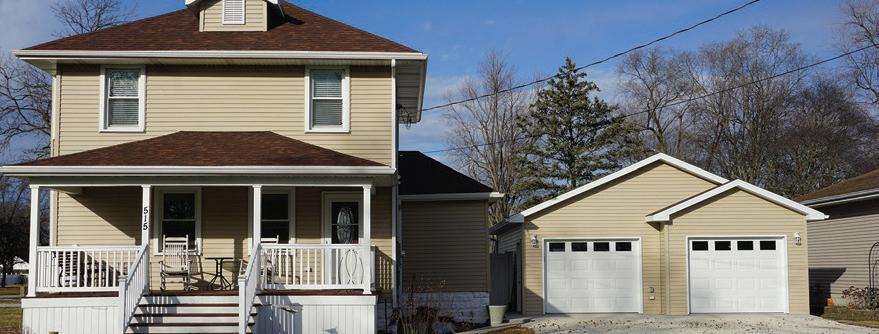







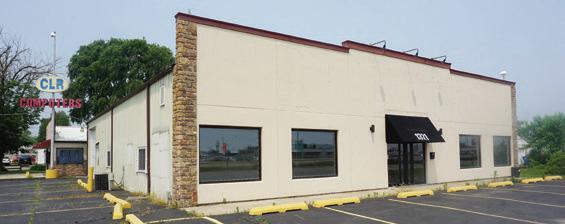















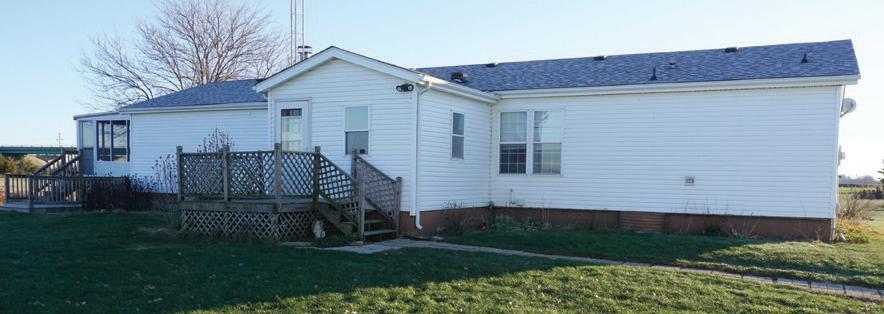
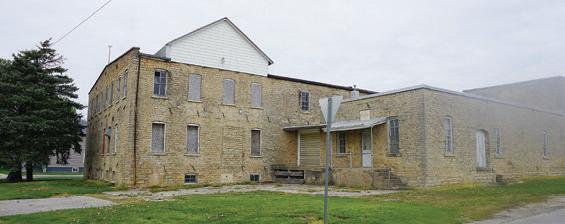
FARMLAND


